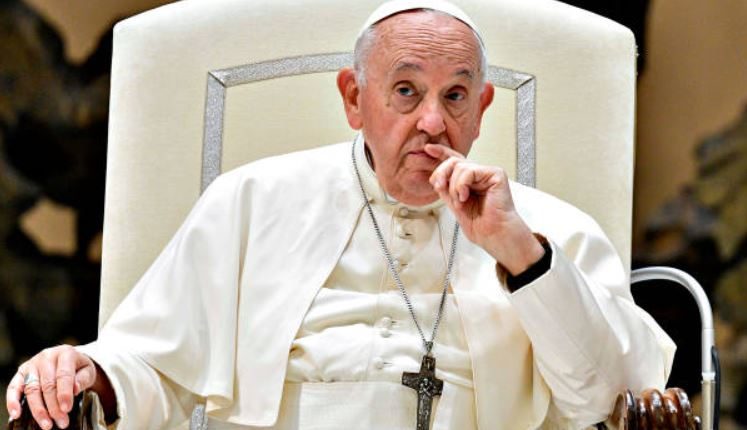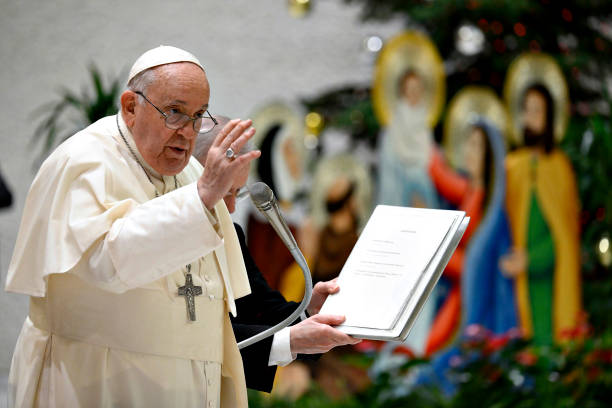
In a recent interview published on Monday, Pope Francis discussed the opposition to same-sex blessings within the Catholic Church, particularly addressing the resistance from bishops in Africa.
The pontiff acknowledged that Africans view homosexuality differently due to cultural perspectives and noted that critics, except for those in Africa, would eventually understand his decision to allow blessings for same-sex couples.
Pope Francis Stands Firm
The allowance for blessings was outlined in a document named Fiducia Supplicans (Supplicating Trust), which has triggered extensive debate within the Catholic Church.
Pope Francis emphasized his confidence that over time, critics would be reassured by the spirit of the declaration, emphasizing its inclusive nature rather than divisive.
Francis highlighted that those who vehemently protest typically belong to small ideological groups, while singling out Africans as a “special case” due to their cultural standpoint on homosexuality, describing it as something viewed negatively.
Despite this, the pope expressed trust in the gradual acceptance of the Fiducia Supplicans document.
Last week, Pope Francis acknowledged the pushback against the document, particularly in Africa, where some bishops rejected it. He emphasized the need for priests to consider the context, sensitivities, and appropriate ways to conduct same-sex blessings.
Read more: Deadly Attack In Jordan: Three US Soldiers Killed By Drone, Dozens Injured
Pope Francis Advocates Two-State Solution for Israel-Palestinian Conflict

In response to concerns about a potential schism within the Catholic Church due to his reforms, Pope Francis dismissed such worries, attributing discussions of schism to “small groups.” He urged moving forward and leaving such groups to their views.
Shifting his focus to the Israel-Palestinian conflict, Pope Francis asserted that true peace would only materialize with the implementation of a two-state solution. He expressed lamentation over the widening of the conflict.
Regarding his health, the 87-year-old pontiff acknowledged some aches and pains but affirmed that he is in better condition, stating, “I’m fine.”
He outlined his agenda for 2024, which includes planned trips to Belgium, East Timor, Papua New Guinea, and Indonesia.
Additionally, he confirmed a scheduled meeting with the president of his native Argentina, Javier Milei, on Feb. 11, with the possibility of finally visiting the country since becoming pope in 2013.
Read more: UNRWA Faces Funding Setback As Japan Suspends Contributions Amid Allegations On October 7

